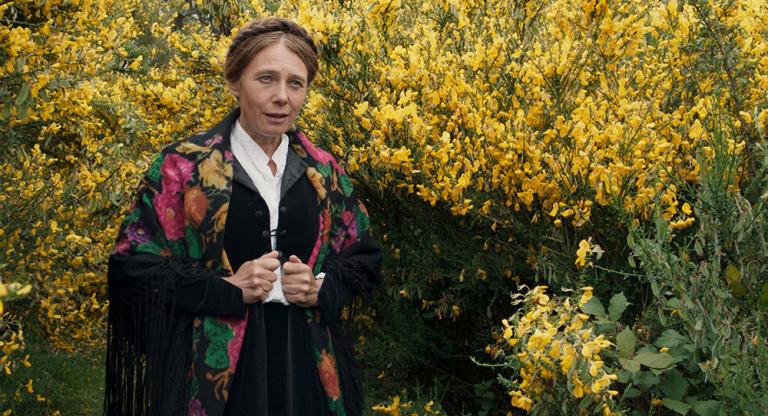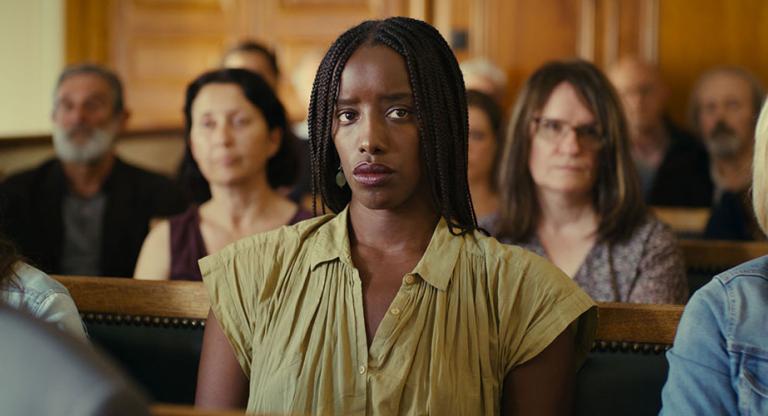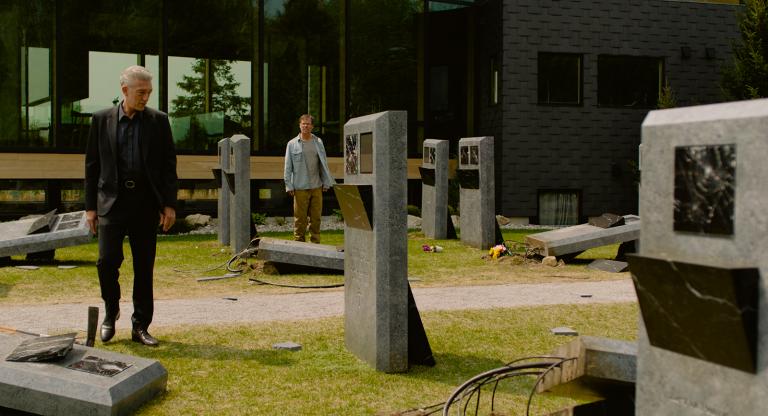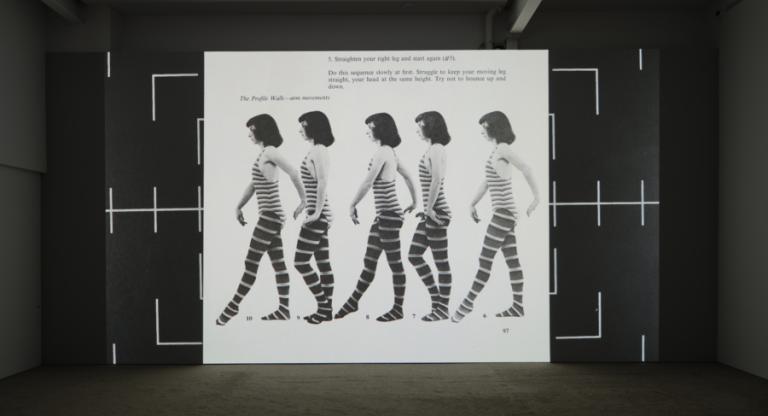It’s illuminating that for her adaptation of Denis Johnson’s 1986 novel The Stars at Noon, Claire Denis cut the title’s definite article. So, too, did she strip the past from its US expat adrift in Central America—on the page, a lapsed antiwar observer of the Nicaraguan Revolution. On-screen, Trish (Margaret Qualley) tells and retells tenuous, tangled backstories: Is she a journalist, a rubbernecker, an opportunist? Is there any difference? And she is flung instead into a contemporary welter of wheeled-away COVID-19 casualties, unserviceable social services, and nebulous misrule (posters decrying nameless abuses of power paper the unpeopled streets; elections hover like rain during drought) that is unfamiliar neither to today’s United States nor the countries where its covert or sanctioned intrusions leave behind ghostly scars. In her 1983 book on US interference in El Salvador, then mired in a years-long civil war, Joan Didion sketches a similar state of deliquescence where “no ground is solid, no depth of field reliable, no perception so definite that it might not dissolve into its reverse.” Made indefinite, Stars at Noon (2022) suggests a scrambled firmament where once-fixed waymarks falter, winking hazily in the wrong light.
There is one steadfast Polaris, however—money. Trish is an indefatigable survivor who tries to escape the country through hoary stratagems: sex work, petty theft, selling out (the last to a magazine editor, played by a Zoomed-in John C. Reilly, who rebuffs both her touristy puff pieces and the banal catalogues of extrajudicial horrors he could catch more cheaply on CNN). Midway through, she solicits a document forger, well schooled in the finer points of the soi-disant “universal” tongue, who says, “‘Fuck’ is the property of the whole world!” He could be understood literally. Trish fucks a Nicaraguan subteniente for a press pass (or, rather, suffers him to fuck her) and, at the stygian Intercontinental Hotel, an Englishman drinking alone, incredibly called Daniel DeHaven (Joe Alywyn), for a nifty “50 US,” meaning, of course, dollars. “Haven” is what Trish wants from Daniel, and he looks the part: his white linen suit is the colonizer’s paragon, a starched envelope sheathing sums, motives, and a standard-issue pistol. Asked about his business, he replies variously but in the same way: oil, crops—in other words, land, the nation itself, swallowed whole.
Soon they are attached by love and a sense of possibly imagined danger that follows them everywhere. The torpor of these vague threats lead to their slow degradation and codependence, revealing Daniel as similarly vulnerable. Trish fills the air with substanceless phrases; Daniel’s pointed silences seem filled with meanings that never materialize—both a kind of chaos: that of the crowd and of the void. Trish and Daniel slumber with limbs entangled and inscribe each other’s bodies (fingers slicked with menstrual blood; her florid clawmark on his “cloud”-white torso). Trish panics at an open door, reading in it his desertion, only to find Daniel casually occluded by her backyard’s protruding wall. When Daniel wakes alone, he buries his face ecstatically in her bucket bag, whether in worshipful dependence or a canny conviction that she would sooner abandon him than cash. Trish jokes that she came to Nicaragua to discover the “exact dimensions of hell,” but this atmosphere of unconsummated suspense is more like purgatory: on a lilac-lit dance floor, scored sensuously by the Tindersticks, a long shot reveals them to be the only patrons, a scene that cannot help but remind Denis devotees of actor Denis Lavant gyrating ecstatically in Beau Travail (1991), but here that maybe-afterlife is reserved for unwelcome strangers in lands strange only to themselves.
For the first time while watching a Claire Denis film, I wondered if ambivalence sufficed, if it was enough to show white characters running before a Global South reduced to a rear-projection screen. Perhaps this is how we live within history’s flow, to its participants less pellucid river than muck. In Denis’s oeuvre, Stars at Noon hews closest to White Material (2009), but its lineage stretches further back: in film, at least to Powell and Pressburger’s Black Narcissus (1947); in literature, to Joseph Conrad’s Heart of Darkness—both about colonialism’s capacity to corrupt its own agents. In Stars at Noon, Daniel discards his tracked cell phone to a chatty cabbie, to flip on the booming black market—an appropriation that proves fatal. Here there is no sly inversion of rule or property, only offhand harms in the wake of Trish and Daniel’s passage. The violence is so determinedly oblique, in fact, it implies whiteness can be beleaguered, imperiled, imprisoned, but not touched. But in White Material, a Black African girl pilfers a chain necklace from the white plantation owner and later levels a gun at her without fear or shame, reappropriating this token of the wealth extracted from her unnamed territory. By looking into the camera, the girl extracts herself from the background and forces our recognition. She knows the stakes. Hemispheres and seasons may shift the position of the stars for the uninitiated, but to her their strewment is as recognizable as home.
Stars at Noon screens October 1–3 at the New York Film Festival, the film’s North American premiere. This evening and tomorrow, director Claire Denis and stars Joe Alwyn and Benny Safdie will be in attendance for Q&As. On October 3, Denis will introduce the film.





